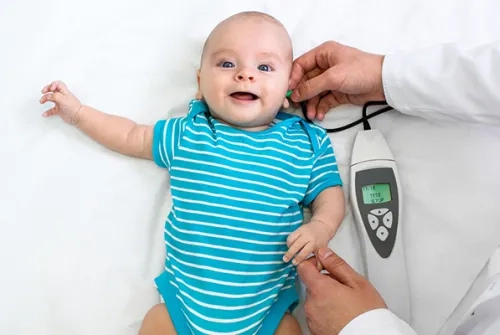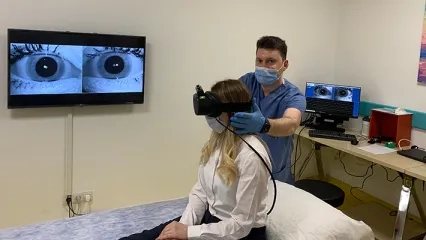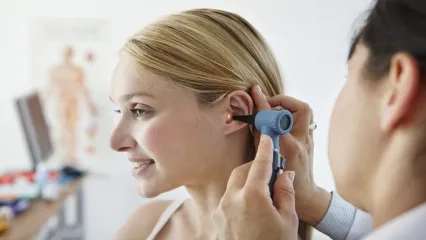Hearing Health
Problems in hearing health are important in terms of creating important restrictions in our lives. Hearing loss can occur due to many different reasons from the newborn period to advanced ages. Prof. Dr. Zeynep Alkan stated that with newly developed technologies, she can solve all kinds of problems and hearing loss at any age. However, she pointed out the importance of accurate diagnosis and timely treatment at this point.
Underlining that adults and children should be evaluated differently in hearing loss, Yeditepe University Koşuyolu Hospital Ear, Nose and Throat and Head and Neck Surgery Specialist Prof. Dr. Zeynep Alkan explained the causes of hearing loss as follows: "There are various reasons related to hearing loss in children during and after pregnancy. In adults, drug use, prolonged exposure to toxic substances, prolonged work in loud environments, exposure to sound trauma, or normal biological aging (after age 65) can lead to progressive hearing loss. Sudden hearing loss may also occur due to infections, vascular occlusions, or sudden exposure to loud sounds, while sudden hearing loss of unknown cause may also occur. In addition, in adults, a simple earwax in the external ear canal, bone protrusion, tears in the eardrum, calcification of the bones in the middle ear, or hearing loss due to some tumors may occur."
Newborns Should Have a Hearing Test in the First 48 Hours
Stating that the most important point for hearing health in children is newborn screenings, Prof. Dr. Zeynep Alkan, said "In line with the recommendation of the Ministry of Health, hearing tests should be performed within the first 48 hours for newborns before leaving the hospital. Children who fail this test are called in again. If it fails the second test, the auditory brainstem response (ABR) is measured. As a result, it is very important to determine the diagnosis early."
Underlining that hearing is extremely important in the development of children, Prof. Dr. Alkan said, "Therefore, screenings should be repeated during primary school. Sometimes, because the child experiences hearing loss, they move away from their environment, tend to their inner world, and therefore, school success may decrease. In such cases, parents and teachers need to be alert and consider the possibility of hearing loss."
Technological Advances Make Screening Easier
Stating that technological developments facilitate the diagnosis of hearing loss in the early period, Prof. Dr. Zeynep Alkan said, "Hearing starts from the 6th month in the womb. If hearing loss is detected in the early period after birth and hearing loss is implanted in the early period, their hearing and speech development may be the same as their peers and they may go to school at the same time. However, in cases with severe hearing loss, the hearing aid may not be sufficient. In this case, a bionic ear is required. Some children may be fitted with an FM system along with a hearing aid. Thus, better-quality hearing can be achieved even in crowded environments."
Bionic Ear in Severe Hearing Loss
The bionic ear, or "cochlear implant", is an electronic device that provides sound sensation in people with severe hearing loss or who cannot hear at all. About the working method of this device used in both children and adults, which was placed in the inner ear with a surgical procedure, Prof. Dr. Zeynep Alkan explained: "This device, which can be implanted in one or both ears, consists of two parts. The inner part is placed under the skin, in the ear. The sound processor analyzes the external sound signals (speech, music, etc.) and converts them into an electrical current format. This electrical current is transmitted by the cable and passed through the skin by radio waves to the implant placed under the skin. The receiving implant carries these waves to the inner ear hearing organ where they are implanted by electrodes. Hearing nerve fibers are stimulated in this way and sound sensation is provided."
"The earlier the bionic ear is worn in children, the more beneficial it will be," said Prof. Dr. Zeynep Alkan, and continued "Bionic ears (cochlear implant) worn between the ages of 1-1.5 give more successful results. However, it can also be worn until the age of 4. 4 years of age is the limit, after 4 years of age, the success decreases because the person cannot perceive the sounds. However, after the device is attached, it is necessary to take care of the child closely and repeat each word by looking into their eyes, not to leave the child on television and do speech therapy. The cochlear implant can last a lifetime, but as the technology progresses, it will become obsolete, so an upper model can be fitted if needed. In the cochlear implant, the anatomical anomalies in the snail in the inner ear are attached to the brain stem, and hearing is provided."
In congenital cases, hearing aids are used first. The degree of hearing loss is important here. Bionic ears may be the solution for those who will not benefit from hearing aids or for those who have very advanced hearing loss. BAHA technology, whose bone is implanted, is used in children and adults who experience transmission-type loss.
Solutions to Hearing Loss in Adulthood
If biological aging is the cause of hearing loss in adulthood, Prof. Dr. Zeynep Alkan says that hearing aids can be the solution at this point, and among the first 3 chronic diseases seen after the age of 65, ear aging and related hearing loss come. Hearing aids are also used in these patients. In order for this age group to socialize and continue its daily life, the treatment of hearing loss is particularly important. Recently, cochlear implants can be worn not only in children but also in adults. Implant solutions can be found especially in people who are in occupational groups where hearing is very important for performing their profession such as musicians and teachers who have severe hearing loss. However, BAHA technology can be used in adults, especially in single-sided transmission-type hearing loss. Whether the hearing type is localized, conduction, or neural type, whether the degree of hearing (mild, moderate, severe) is presented accordingly.
New Surgical Methods in Temporary Hearing Losses at the Forefront
Stating that middle ear infections caused by infections such as catarrh, flu, sinusitis, or diseases such as nasal enlargement and allergies in children may cause temporary hearing loss, Prof. Dr. Zeynep Alkan conveyed the following information about the developments in this regard: "The failure of the Eustachian tube may also lead to temporary hearing. The problem of adenoid growth, which leads to pressure around the eustachian tube or repeated infections, is eliminated by removing the adenoid and inserting a tube into the ear.
Especially in pilots or flight attendants who fly very frequently, problems can be seen in the eustachian tube. The middle ear is vacuumed because the air does not go from the eustachian to the middle ear. In this case, temporary hearing loss may occur. This hearing loss may become permanent if the patient has a functional disorder. If not intervened in time, the eardrum may tear due to vacuuming. In this case, although it cannot be intervened in time, hearing loss may be permanent. Eustachian balloon tuboplasty can be considered as a solution to either insert a tube or make the eustachian work by performing pressure tests and hearing tests on the middle ear. Even when the slightest hearing loss occurs, the physician should be consulted without delay."
Another factor that causes conduction-type losses is eardrum tears. Reminding that endoscopic eardrum surgeries can be performed in the outer ear canal without surgical scar in eardrum ruptures caused by different reasons, Prof. Dr. Zeynep Alkan, says a new eardrum repair is performed by taking parts of the patient's cartilage or other tissues. Stem cell treatments are also being experimentally studied to regenerate cells that die from various causes inside the snail in the inner ear.
This content was prepared by Yeditepe University Hospitals Medical Editorial Board.
”
See Also
- They Said He Could Never Speak Again Due to Laryngeal Cancer, But Today After the Surgery He Underwent, He Can Speak!
- Causes of Hearing Loss
- Ringing in the Ears Does Not Mean Somebody Is Calling for You
- Treated For Asthma For Two Years But Has Had A Tumour In Her Trachea
- Chance of Treatment in Patients Who Have a Tube Inserted in Their Throat to Breathe
- Can Infection Cause Permanent Hearing Loss?
- He Was Ashamed to Speak, and He Was Reborn with His New Voice
- Survived from Tumor Covering Half of Larynx With Closed Surgery
- Beware of hoarseness lasting longer than 15 days!
- Unexpected Causes of Hearing Loss
Alo Yeditepe





